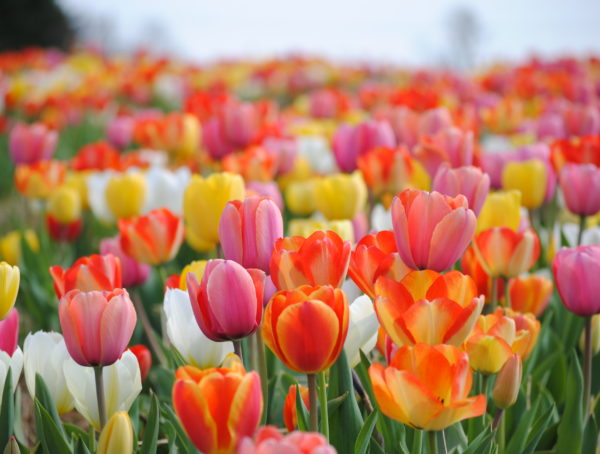Every year Muslims around the world gather and celebrate Ramadan. Ramadan falls in the ninth month of the Islamic calendar and marks the occasion when the sacred book of Islamic scripture, the Quran, was first introduced to Prophet Muhammad. It is for this reason that many Muslims spend the month of Ramadan renewing their promise to their faith by fasting, praying, and taking part in charity and community services. In order to experience the full spiritual benefits of fasting, an individual must take the time to prepare their body for the fast. It can be hard to know which foods to eat during Ramadan to keep your energy up and body fueled, especially as food and drink can only be eaten from sunset to sunrise.
Here are some nutrition tips to help you feel your best during Ramadan.
- Stay Hydrated – Drink Lots of Water
Drinking fluids is important as it keeps your body hydrated and replaces any water lost during the day. The risks of not drinking enough water are headaches, fatigue, and difficulty concentrating. The best beverage choice is water. Keep a reusable water bottle or glass of water with you during non-fasting hours and make a note to sip water frequently. If you do not enjoy the taste of plain water, add fruit slices and herbs to your water for more flavour. Try adding cucumber slices and mint, or lemon and lime wedges to water. Avoid beverages that contain caffeine like coffee, excessive tea, and some sodas. Caffeine dehydrates the body. Instead choose water, herbal teas, and other decaffeinated beverages most often.
- Break the Fast with a Balanced Snack
At Iftar, meaning the meal after sunset, the day time fast is broken by eating a snack. A traditional, healthy choice is eating 1 to 2 large dates and 1 cup of low fat milk. Dates are a dried fruit high in potassium, magnesium, vitamin B6, and fibre, and milk is a good source of calcium, water, and potassium. This combination helps replenish electrolytes and rehydrate the body. You can replace dates with other dried fruits such as prunes, apricots, figs, raisins, and peaches. Other ways to include more fluids in the day is enjoying a bowl of lentil soup or a stew. Not only will this add extra fibre but hydrate your body as well.
- Eat A Balanced Meal at Iftar and Suhour
Eating a balanced meal shortly before the next day’s fast begins (Suhour) and after your Iftar snack is important to help you feel your best. The best nutrients to include in a meal are a combination of complex carbohydrates, fiber, and protein.
Good complex carbohydrate choices are whole grain bread, pita, oats, cereal, brown rice, and wild rice. They provide a variety of nutrients to your body like B vitamins, iron, magnesium, and fiber. The fiber in these foods will help you digest food slower and keep you full for longer. Whichever complex carbohydrate you choose, it is important to pair it with a protein food. Protein helps repair and heal injuries when you get hurt, and build a good immune system. Protein can come from vegetarian foods and non-vegetarian foods. Good protein choices are meat, poultry, fish, eggs, and meat alternatives such as baked beans, lentils, nuts and seeds, and nut butters. Balance your plate with a serving portion of fibrous and vitamin rich fruits and vegetables. Fibrous fruits include bananas, apples, berries such as a banana, apple, berries, tomato, and cucumber.
Here are some meal ideas:
- Oatmeal topped with sliced almonds, chia seeds and fresh or frozen berries.
- Whole grain toast topped with smashed avocado and hardboiled egg. Add a side of unsweetened yogurt and berries.
- Scrambled eggs with spinach and feta wrapped in a whole wheat pita and a fruit on the side.
- Tandoori spiced chicken breast, rice pilaf, and steamed vegetables.
- Lamb sprinkled with fresh herbs like thyme and parsley pan roasted with potatoes and carrots.
- Avoid processed, fried, and foods with a lot of added sugar
Since non-fasting hours are limited, it is important to limit foods that provide little to no nutritional value. Avoid indulging in highly processed foods like cheese buns, fried foods like samosa and pakoras, and sugary foods like sweets and desserts. You may be offered these foods during non-fasting hours by others or you may be used to keeping them in your home. Just remember while they may fill you up right away, they will not provide you with lasting energy through the day. Instead, choose whole foods packed with nutrition that will hydrate your body before the next fasting day begins.
May this Ramadan be filled with joy and prosperity for you and your loved ones. Enjoy this time with family and bond over a healthy, wholesome meal.
More from Featured
Ricky Kej – Grammy® Winner & ‘United Nations Humanitarian Artist’ LIVE in concert, Canada
‘Ricky Kej - LIVE at Holland Park, Surrey, is going to be the first-of-its-kind Global Symphonic Experience in Canada. International …
Nowruz – The First Day of Spring
What is Nowruz? The Word “Nowruz” is made up of two words of “Now” and “Ruz”. In Farsi, “Now” is translated …










Leave a Reply